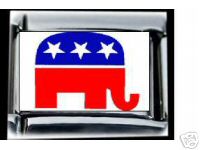What The FairTax Means To Seniors
It’s “in” to be “old.”
The pre-boomer generation now sports grey hair and grandchildren.
Senior citizens are the larger portion of the overall population, too. In 1970, those over 65 years of age were 9.8 percent of the population. By 1995, seniors were 12.7 percent of the population. 13 years from now, seniors will account for 13.3 percent of the population and in 2020, they will account for 16.5 percent.
Seniors, ready to rest more and work less, often rely on incomes conbined of benefits from social security, government or company retirement programs and investments. They still have to pay income taxes. How much better to have 100% of each benefits check to keep each month, tax free. FairTax would make that happen.
Under the FairTax senior citizens, like everyone else, will receive a cash rebate at the beginning of each month. Therefore those with the lowest incomes will pay no tax at all. In fact, the Fair Tax is the only tax plan, including the current income tax regime, that completely "untaxes" the poor.
Income tax on social security will be repealed. The income tax imposed on investment income and pension benefits or IRA withdrawals will disappear. Pension funds, IRAs, and 401(k) plans had assets of over $9 trillion in 1998. An income tax deduction was taken for contributions to many of these plans, and all beneficiaries and owners of these plans expected to pay income tax on them upon withdrawal. Not if we pass the Fair Tax — once the income tax is gone, taxes on savings go with it. In other words, the hard-earned savings of seniors will be accessible, tax free.
Repeal of the corporate and individual income tax, and the estate and gift tax will have a substantial positive impact on the stock market. Seniors who own stocks either directly or through mutual funds, Individual Retirement Accounts, 401(k) plans, or otherwise, will experience significant gains. More seniors own stocks than any other age group. In addition, unrealized capital gains that would have been subject to the income tax when realized will no longer be taxed.
Newly constructed homes will be taxed, but formerly owned homes will not be. Currently, equity payments on homes must be paid from after-income-tax earnings (i.e. principal payments are not deductible). The purchase of existing housing is thus subject to the income tax. All owners of existing homes will experience large capital gains due to the repeal of the income tax and implementation of the FairTax.
Estate and gift taxes will be repealed. The need for small businesses and farmers to engage in expensive estate planning involving attorneys, complex estate freeze transactions, and expensive life insurance plans in anticipation of future estate and gift tax liability will disappear. The “death tax” will be repealed. Heirs will no longer need to sell the business or farm out of the family or borrow heavily, putting the business at risk, in order to pay the estate tax.
The Fair Tax will make the economy much more dynamic and prosperous. Consequently, federal tax revenues will grow, spending will be under less upwards pressure, and the deficit will decline. Budget pressure on entitlement spending, already significant, will become much more pronounced once baby boomers start retiring in 2010. The economic growth caused by a consumption tax will make it substantially less likely that federal budget pressures will result in Medicare or Social Security benefits cuts.
Seniors, able to live more comfortably in their last years, will be happy to know that their children and grandchildren will no longer labor under the yoke of the income tax and will know that they can leave the fruits of their lives to the next generation without fearing punishing taxation.




0 Comments:
Post a Comment
<< Home